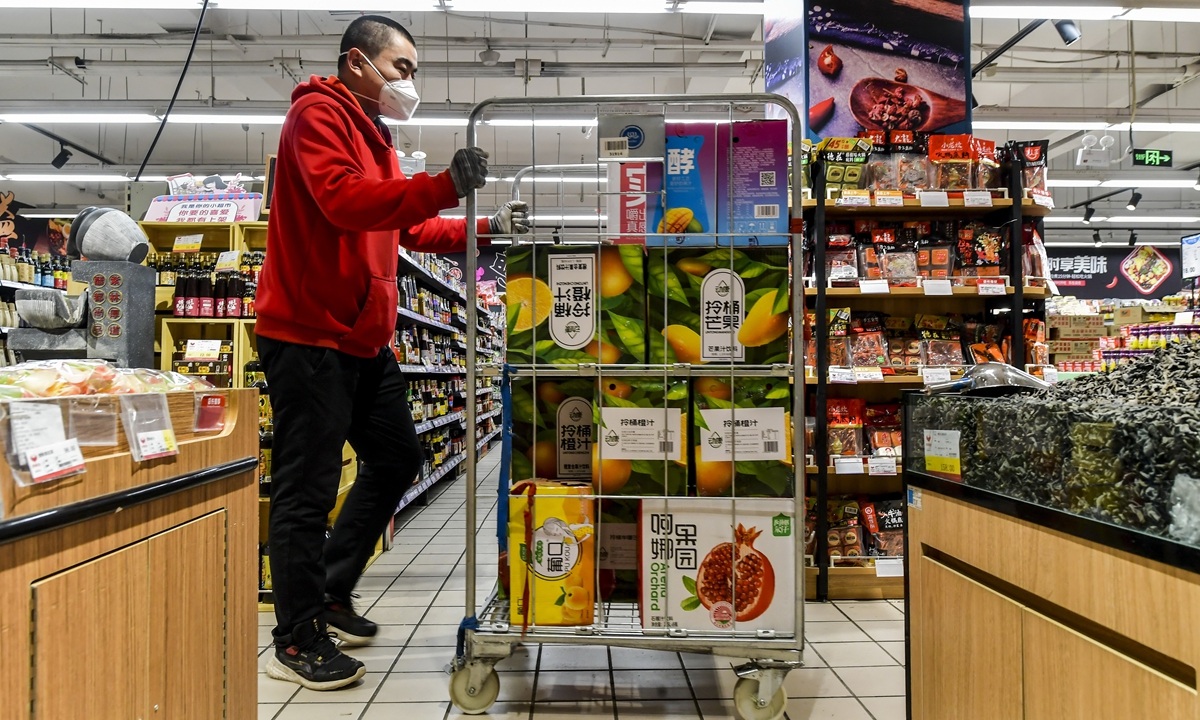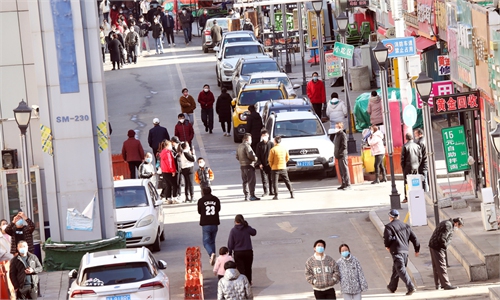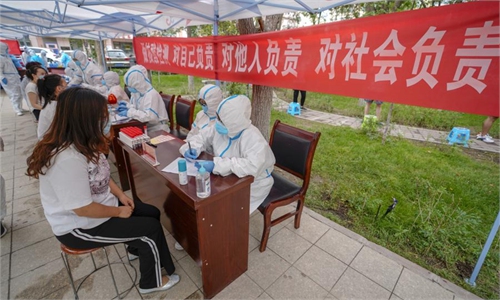Urumqi to further subsidize low- and non-income groups, instruct channels to appeal for wrong health codes

A worker organizes goods on the shelves for the upcoming resumption of business at a supermarket in Urumqi, capital of Northwest China's Xinjiang Uygur Autonomous Region, on November 28, 2022. Photo: IC
Authorities in COVID-hit Urumqi, capital of Northwest China's Xinjiang Uygur Autonomous Region, announced on Tuesday to subsidize people of low-income, further explained conditions on lifting static management, and directed a channel of appeal to those who were given wrong health codes.
Urumqi has formulated policies and measures in three aspects to ensure the basic livelihood of low-income and non-income groups, Li Yanmei, deputy secretary general of the Urumqi City People's Government, announced during a press briefing on Tuesday.
According to Li, the city will subsidize the low- and non-income groups with one-time subsidies of 300 yuan ($41.62) per person.
The city will also provide public welfare positions for low-income groups with difficulty in getting employed. People in need of jobs can file applications to their communities.
Besides, the city also issued preferential policies to families enjoying public rental housing.
Families who failed to pay the rents for the public rental houses can enjoy cuts of five-month rents. For those who have paid their rents for the public rental houses, their lease term will be extended by five months.
Urumqi announced on Sunday that the city will gradually resume public transport and production activities related to people's livelihoods in low-risk areas from Monday, one day after the city declared that it has basically cleared COVID-19 cases at the community level and vowed to restore order to the lives of residents in low-risk areas in a phased manner.
The city further announced on Monday to step up resumption of normal life and production order with many livelihood-related functions including couriers and airlines to be resumed since the epidemic situation in the city has been improving.
The city registered two new confirmed cases and 103 asymptomatic carriers on Monday.
The local authorities reiterated on Tuesday the policies to the high-risk and low-risk areas based on the ninth edition of China's COVID-19 control protocols and specified optimized measures in a bid to step up resumption of life and production orders in the city.
Strict static management will continue to be implemented in the high-risk areas with local residents banned to leave their homes. Livelihood necessities will be delivered and served at their doors.
Residents in need of medical service will be transported to hospitals by arranged vehicles directly.
According to the newly rolled-out 20 optimized measures, if no new infections are found in high-risk areas for five consecutive days, they will be downgraded to low-risk areas in time, and the lockdown measures will be lifted in an orderly manner after risk assessment.
The local authorities also reiterated the health code management, noting that those who think they are granted with wrong health codes can appeal or report for registration.
According to the authorities, during the static management of high-risk areas, those with confirmed infections and their close contacts will be given red health codes, while other residents in the high-risk areas and service providers working in closed-loop management to serve the residents will be given yellow codes. Their health codes will turn to green when the areas are downgraded to low-risk.
Residents who think they were given wrong health codes or inaccurate health codes can appeal via hotline 12345 or report to their communities or villages for registration. Their health codes will change within one hour after passing assessment.
Global Times


